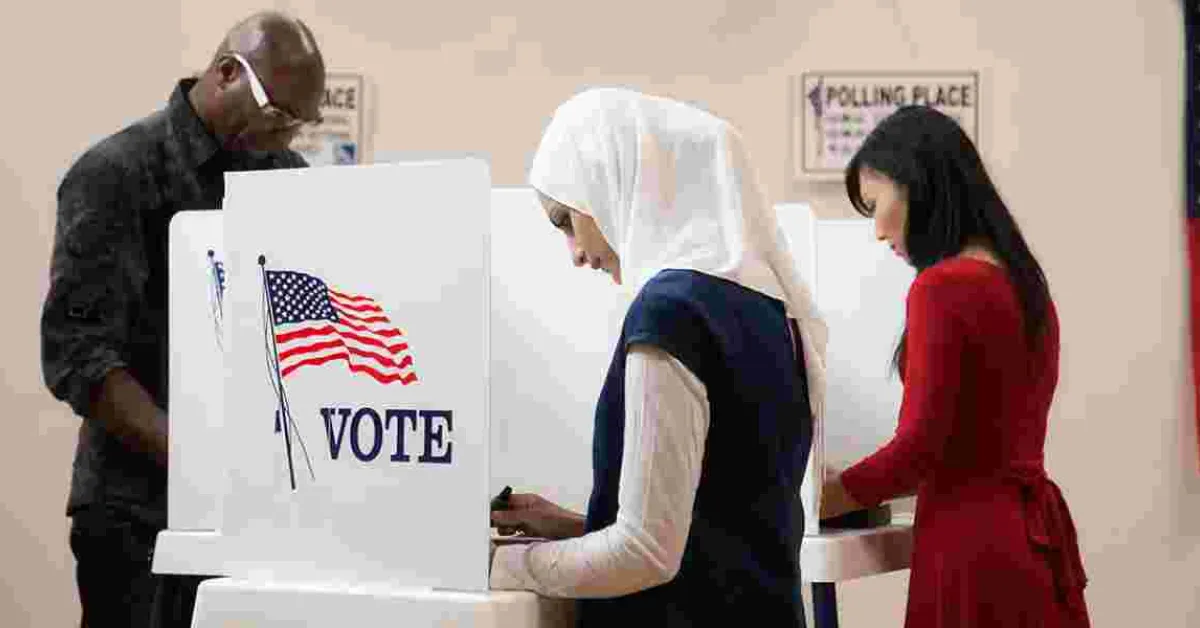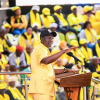Explainer: The Reality of Noncitizen Voting in US Elections

The issue of noncitizen voting in the United States has been a subject of intense debate and scrutiny.
Federal and state laws strictly prohibit noncitizens from participating in federal or state elections, with severe penalties in place for those who violate these regulations. Since 1924, all states have banned noncitizen voting in federal elections, and in 1996, Congress established criminal penalties for such offenses. The consequences for noncitizens who register or attempt to vote, even by mistake, can be dire, including up to five years in federal prison and potential deportation. Despite widespread claims of significant noncitizen influence on US elections, substantial evidence to support these assertions is notably absent. Extensive research and assessments conducted by election officials consistently demonstrate that instances of voter fraud by noncitizens are exceptionally rare.
A comprehensive analysis by the Heritage Foundation identifies a mere 23 cases of noncitizen voting between 2003 and 2022, representing an infinitesimal fraction of total electoral participation during this period. Similarly, a study by the Brennan Center for Justice focusing on the 2016 election found that only 0.0001% of 23.5 million votes cast in surveyed jurisdictions were attributed to suspected noncitizen voting, with 40 out of 42 jurisdictions reporting no known incidents. The path to citizenship and voting rights for immigrants in the United States is arduous and time-consuming. Obtaining legal permanent residence, or a green card, is the first step in a process that can span several years.
After achieving this status, individuals must generally wait an additional five years—or three years if married to a US citizen—before becoming eligible for naturalization. For migrants crossing the US-Mexico border, the journey to citizenship can be particularly challenging, often taking a decade or more, with some never finding a viable path due to various legal obstacles. While noncitizens are barred from voting in federal and statewide elections, at least 16 jurisdictions across the country permit their participation in certain local elections, such as those for city council or school board positions. However, even in these settings, noncitizen engagement remains relatively low.
In response to unfounded claims of widespread noncitizen voting, state legislatures have seen an increase in proposed measures aimed at strengthening voter ID requirements and eligibility verification. These initiatives, primarily advanced by Republican officials, have raised concerns among voting rights advocates who argue that such measures could create unnecessary barriers for millions of US-born citizens who may lack immediate access to required documents like birth certificates or passports. Civil rights proponents warn that efforts to verify citizenship could inadvertently disenfranchise eligible voters.
State-conducted audits reveal that while some noncitizens may inadvertently register to vote, they are typically prevented from casting ballots until they can provide appropriate proof of citizenship. A 2022 investigation in Georgia, for instance, identified over 1,600 potential registration incidents involving noncitizens from 1997 to 2022, yet all individuals were ultimately blocked from voting. These findings suggest that the systems in place to protect electoral integrity are functioning effectively.














Comments
I have no reason of voting…
Permalink
I have no reason of voting in Kansas City if my vote made no difference in my place of birth,PUMWANI location.Thugs and murderers make decisions in Kenya but I hope their day to FACE FIRING SQUAD will come soon.
What does the author mean by…
Permalink
What does the author mean by noncitizens voting? It is illegal and I haven't seen it here. STOP IT?
Add new comment